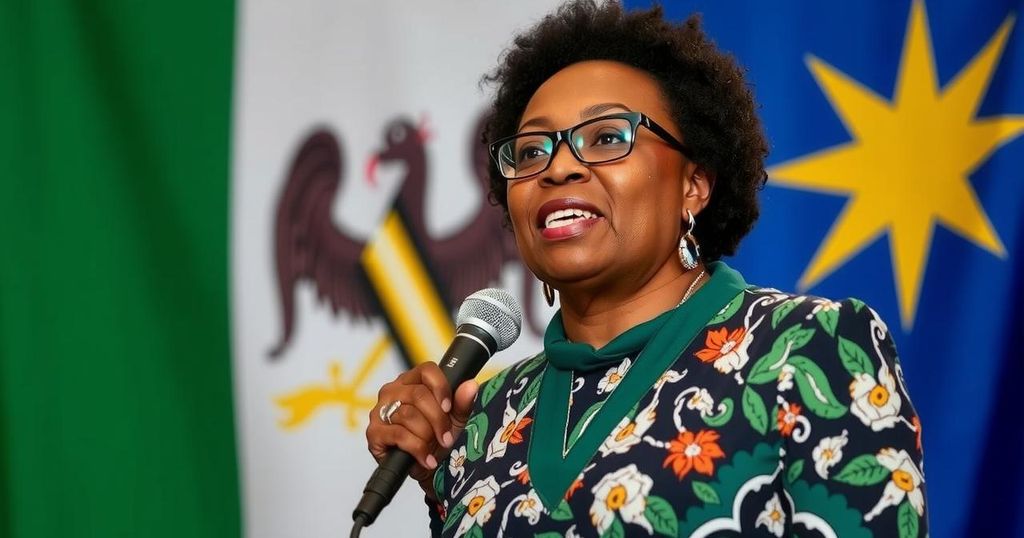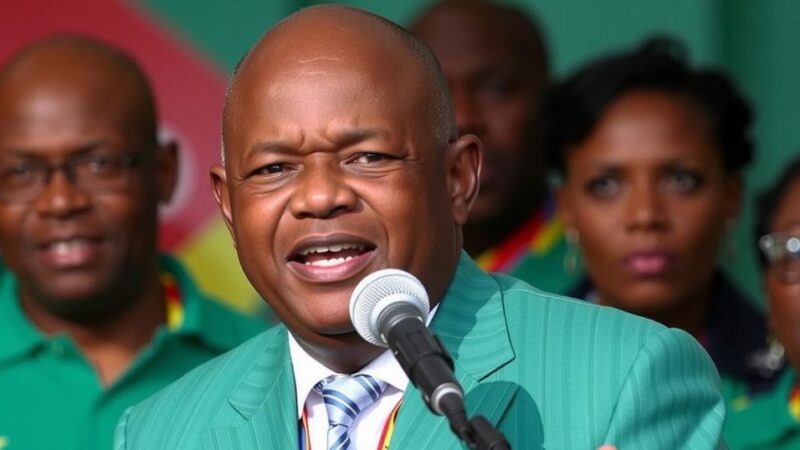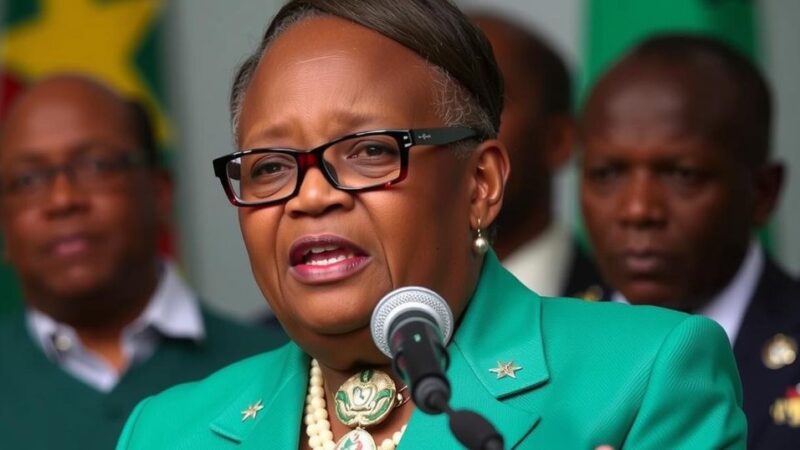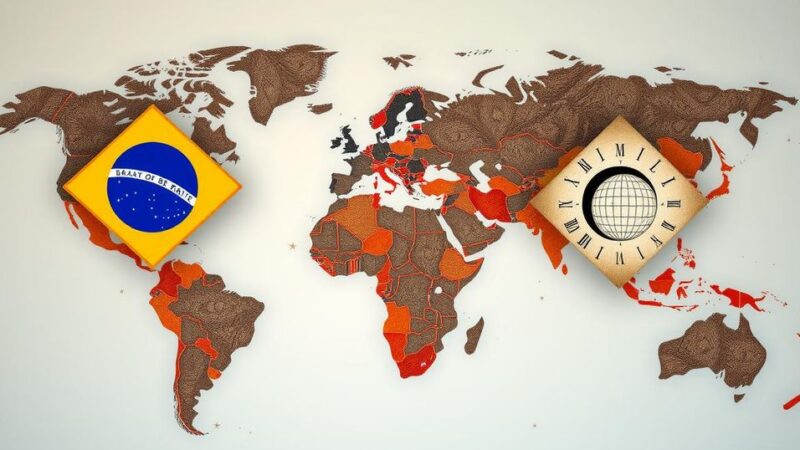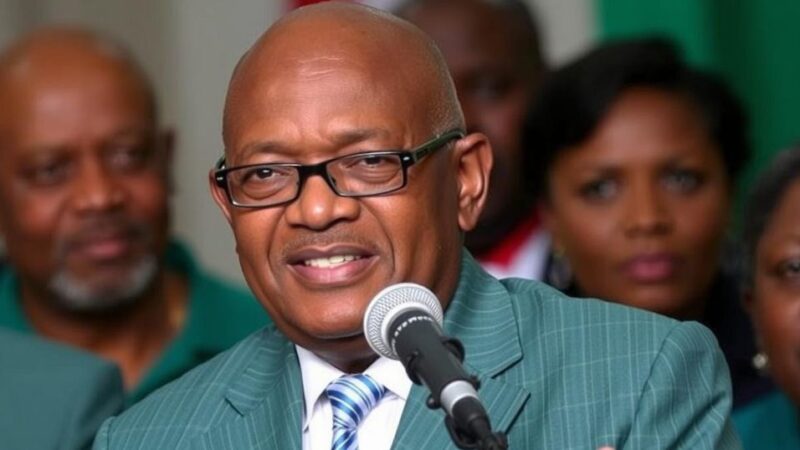Namibia has elected its first female president, Vice President Netumbo Nandi-Ndaitwah, who won the election with 57% of the vote. Her party, SWAPO, retained power amid technical issues and allegations of irregularities from opposition parties. Despite winning, SWAPO faces challenges concerning the electoral process from critics who plan to contest the results in court.
Namibia has made history with the election of its first female leader, Vice President Netumbo Nandi-Ndaitwah, who secured victory in last week’s presidential election. Nandi-Ndaitwah garnered 57% of the vote despite predictions of a runoff, marking a significant moment for the country’s political landscape. Her party, SWAPO, which has maintained power since Namibia’s independence from apartheid South Africa in 1990, also won the majority in parliamentary elections.
The election was not without controversy. Opposition parties have raised concerns regarding the legitimacy of the election, citing technical issues such as ballot paper shortages that extended the voting period until Saturday. They plan to contest the election results in court, arguing that many citizens were denied the chance to vote. Despite this turmoil, the SWAPO party has reaffirmed its dominance in the political arena, underscoring its 34-year tenure.
At the age of 72, Nandi-Ndaitwah has a long history in Namibian politics, having been part of the independence movement during the 1970s. She ascended to the presidency following the death of President Hage Geingob earlier this year. In the election, the Independent Patriots for Change, led by Panduleni Itula, finished second with 25% of the vote and won the second-largest number of seats in Parliament, reflecting a growing but still limited challenge to SWAPO’s longstanding rule.
In a statement on social media, the SWAPO party expressed their triumph: “SWAPO Wins. Netumbo Wins. Namibia Wins. Now Hard Work.” The opposition’s allegations of election irregularities have prompted a deepening inquiry into the electoral processes, while the country’s reputation for stability amidst a challenging political backdrop remains a focal point as Namibia navigates this transitional phase in leadership.
Namibia is one of Africa’s most stable democracies, situated on the continent’s southwest coast and notable for its low population density despite covering an area larger than Germany. Since gaining independence from apartheid South Africa in 1990, the SWAPO party has been the dominant political force in Namibia, maintaining power for over three decades. The recent election led to the historic appointment of a female leader in a region where political representation continues to evolve. Notably, the elections faced operational challenges that raised questions about the electoral integrity, an issue that could influence the country’s democratic processes in the future.
In conclusion, Namibia’s election of its first female president represents a landmark achievement in the nation’s history. While Vice President Netumbo Nandi-Ndaitwah’s victory signifies progress, the election’s integrity has been called into question by opposition parties. As Namibia continues to navigate its political landscape, the focus will remain on addressing voter accessibility and ensuring confidence in the electoral process while upholding its democratic values.
Original Source: abcnews.go.com

